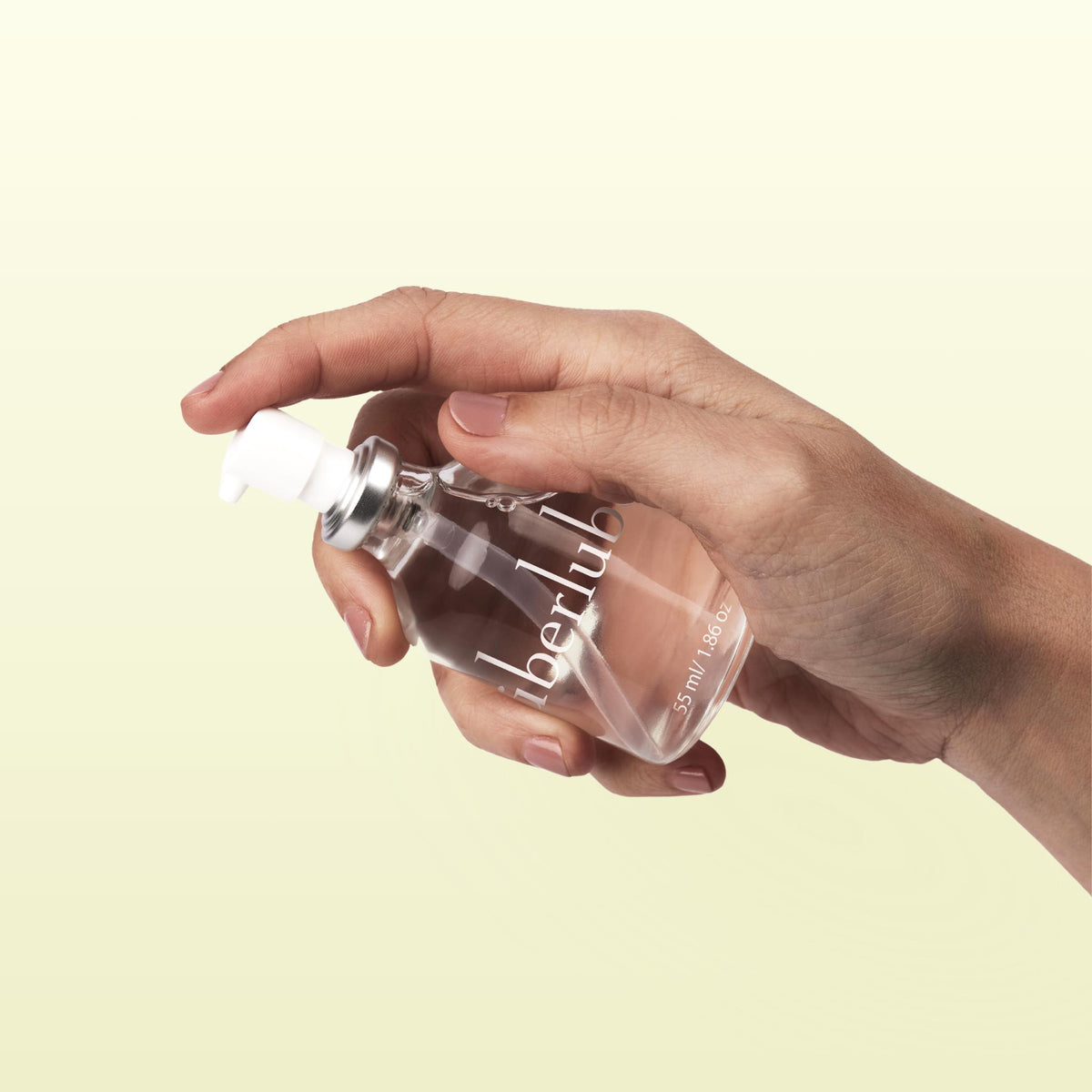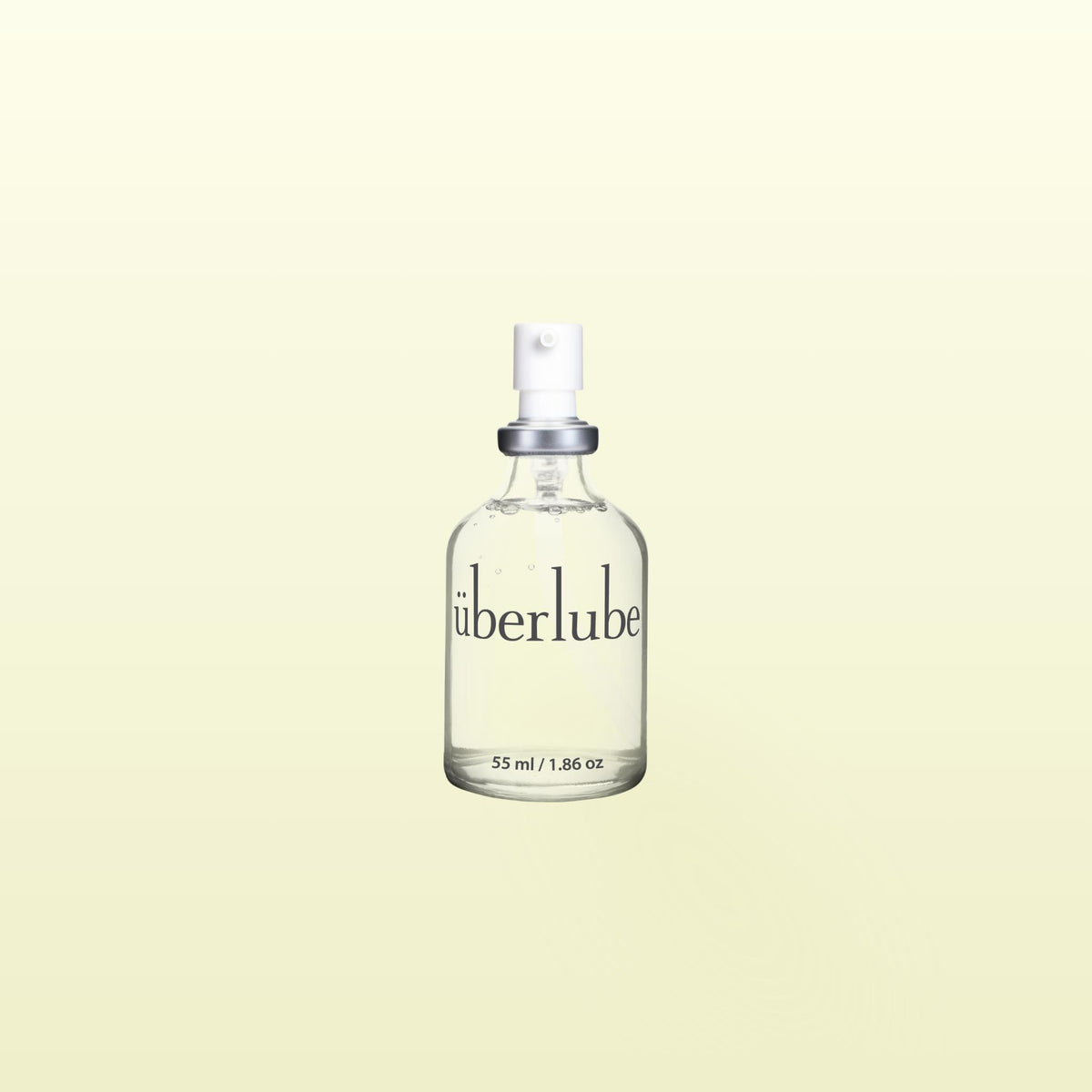Like it or not, vaginas have a smell – just like every other part of the body.
Local drugstores, mainstream ads, and misinformed bloggers have been pushing products to mask or “improve” the vagina’s natural smell for years. But here’s the thing: a healthy vag isn’t supposed to smell like roses, island fruit, or any other scent you’d find on the label of an overpriced candle.

In reality, the vagina houses billions of bacteria. The scientific term for these bacteria is vaginal flora. Just like the gut, the vagina has “good” and “bad” bacteria. The good bacteria (lactobacilli) typically outweigh the bad bacteria (anaerobes). This balance helps to ward off infections (including yeast infections and bacterial vaginosis or BV).
If your vaginal flora becomes unbalanced, however, you may experience discomfort, unusual vaginal discharge, and a pungent “fishy” odor. (Remember: having vaginal discharge is normal — signs of “unusual” discharge include a change in amount, consistency, color, and smell of what you usually experience.)
“A normal vaginal pH ranges between 3.8 and 5.0, which is moderately acidic,” says Sophia Yen, MD, MPH, and CEO and co-founder of Pandia Health. “Anything foreign to the vagina [e.g., soap, lubricant, douching, steaming, spermicide, Phexxi, a prescription birth control gel, etc.] can disrupt the body's natural vaginal microbiome.”

Our vaginal microbiome is pretty delicate and there are a lot of things that can disrupt it. Keep reading to learn more about vaginal smells, why they happen, and what’s “normal.”
Types of Vaginal Smells and Why They Happen
Tangy
If your vagine smells tangy, fermented, or even sour, that’s totally OK! A healthy vagina is slightly acidic. When the good bacteria (lactobacilli) outnumber the bad bacteria (anaerobes), your nether regions may smell a bit tangy.

“When the vagina becomes more alkaline (a higher pH), other bacteria may dominate the vaginal bacterial environment causing an imbalance or dysbiosis,” says Steven A. Rabin, MD, FACOG, a board-certified obstetrician and gynecologist at Advanced Gynecology Solutions. “One of the important bacterial components of the healthy microbiome is lactobacillus acidophilus. The word acidophilus actually means ‘acid-loving.’”
Fun fact: Certain yogurts, pickled foods, and kombucha contain some of the same kinds of good bacteria that thrive in many healthy vaginas.
Mildy Earthy or Musky
If you notice an earthy or musky scent, it’s usually nothing to be worried about. The groin has so many sweat glands, so if you get a whiff of something musky it could be a combination of sweat and the bacteria on your skin.

Skunky or Smoky Herb
Speaking of sweat…if there’s a skunky or smoked herbal scent hanging around down there, it could be from emotional stress.
“The cause for this odor could be emotional stress,” says Veena Madhankumar, MD, and OB-GYN at iCliniq. “When stressed, the body produces a milky, odorless fluid. When this fluid comes in contact with vaginal bacteria it produces a skunky odor.”

Bread or Yeast-like
Though subtle, a yeast infection can cause changes in the smell of your vaginal discharge. An overgrowth of yeast may create a sweet smell that’s similar to freshly-baked cookies, flour, or bread. Sometimes, this overgrowth of yeast can smell like beer.

Other symptoms of a yeast infection include itching and irritation in the vagina and vulva, swelling of the vulva, thick and white discharge with a cottage cheese appearance, a burning sensation, and vaginal pain or soreness.
Fishy
A fish smell could indicate a serious condition such as bacterial vaginosis (BV) or trichomoniasis (trich), a sexually transmitted infection, says Dr. Madhankumar.

- Bacterial vaginosis (BV): Bacterial vaginosis or BV occurs when there’s an imbalance of “good” and “bad” bacteria in the vagina. A fishy scent, among others, might be a sign of BV. According to the CDC, BV is the most common vaginal condition in women aged 15 to 44. For unknown reasons, BV is more common in lesbian and bisexual couples.
- Trichomoniasis (trich): Trichomoniasis is a common and curable STI that can cause a potent, fishy vaginal odor. Trich can also cause unusual vaginal discharge that’s white, gray, yellow, or green in color, genital itching or burning, and painful intercourse.
Both BV and trich can be treated with antibiotics.
Rotten
If you notice an odor that’s putrid or “rotten” but isn’t fishy, it could be because of a forgotten tampon inside the vagina. (This actually happens a lot!) It can also happen when a tampon is left in for too long.

If this odor is coupled with a fever, diarrhea, muscle aches, or confusion, you should get to a medical professional ASAP. Though rare, Toxic Shock Syndrome (TSS) — a deadly condition caused by Staphylococcus aureus (staph) bacteria — isn’t completely off the table.
Ammonia or Chemical Smell
A chemical or bleachy odor could mean one of a few things. “The cause of this odor can be the buildup of urine in the underwear or it could also be a sign of bacterial vaginosis,” says Dr. Madhankumar.

In addition to a fishy smell, BV can also cause a vaginal odor that’s similar to the smell of ammonia or bleach. That said, this doesn’t necessarily mean you have BV. Urine buildup can also cause a person’s underwear or vulva to smell like ammonia. It could also be a sign that you’re dehydrated or have a urinary tract infection (UTI).
Sweet
If your cookie smells like molasses, it’s most likely nothing to worry about. This may mean that your bacteria levels are in flux, which can affect your pH balance and change your vaginal odor.

Coppery
A coppery or metallic smell isn’t a cause for concern. “This odor has nothing to worry about and rarely does it signify serious problems,” says Dr. Madhankumar. “It can be because of menstrual blood or bleeding after sex.”

Blood contains iron, which often has a metallic smell. If you’re on your period or experience light bleeding after sex (due to vigorous sex or vaginal dryness), you may notice a coppery odor. That said, this scent shouldn’t linger. If you notice vaginal bleeding that’s unrelated to your period or if this smell persists, you may want to see your doctor.
Surprising Things That Might Be Disrupting Your Vaginal pH and Altering Your Vaginal Odor
If your vagina has an overly sweet or fishy scent, your vaginal pH might be disrupted.
Some surprising things can cause that to happen, including:
- Unprotected sex (including oral sex)
- Douching
- Hygiene sprays
- Perfumed soaps (or taking bubble baths)
- Bidet use (bidet users are 12 times more likely to have fecal bacteria in their vagina)
- Wiping back to front following a bowel movement
- Hot tubs
- Antibiotics
- Semen
- Menstruation
- Hormone cycles or menopause
- Tight-fitting clothing or underwear
- Dietary changes
- Blood sugar levels
- General immune status (being sick can also affect your pH!)
“There are plenty of people who are fearful even of completely normal and healthy vaginal odors,” says Carol Queen, Ph.D., and resident sexologist at Good Vibrations. “Products like Lorals are a great way to deal with that, since they cover the vulva during oral sex, plus they have a mild scent of their own which will further mask vaginal scents,” Queen continues. “If the vaginal odor is telegraphing something unusual or problematic, it's all the more reason to use Lorals as a barrier — just in case there’s a health issue. If someone suspects that, they should see a doctor about their vaginal health.”
“To be clear, healthy vaginas can present with a range of scent profiles, but health conditions involving the vagina often result in strong, unusual, or unpleasant odors,” Queen adds. “So anyone with a vagina — or partnered with a person with a vagina — would be encouraged to pay attention to what their own [or their partner's] scent is usually like, so they can recognize changes.”
Using Lorals can:
- Prevent bacteria transfer (which can lead to BV)
- Prevent fluid transfer (which can lead to yeast infections, other vaginal infections, and STIs)
- Ease any feelings of self-consciousness about your scent or flavor during oral (while also providing a thin barrier that’ll let you feel all the sensations!)
- Provide comfort and security during oral (e.g., rimming or facesitting)
- Open doors for individuals who are interested in exploring kink
- Allow gym bunnies the luxury of getting head without worry
When to See a Doctor
Vaginal odor is totally normal. If you notice an odor that’s pungent or unpleasant, however, you may want to reach out to a medical professional to ensure nothing serious is going on.
You should reach out to your doctor if your vaginal odor is accompanied by one or more of the following symptoms:
- Unusual vaginal discharge
- Vaginal swelling
- Burning
- Itching
- Bleeding that’s unrelated to your menstrual cycle
- Fever
- Rash or irritation
“When patients try to make their own diagnosis they are correct only 50% of the time,” says Dr. Rabin. “Going to your trusted gynecologist for testing is your best bet. In practice, we check vaginal secretions for their pH, which typically look under the microscope for yeast, bacterial vaginosis, and trichomonas.”
How to Maintain a Healthy Vaginal pH
Here are a few tips for keeping your vaginal pH at a healthy level:
- Avoid douching: Douches and other “feminine hygiene” products such as deodorants and sprays can negatively affect your vagina’s pH levels. According to the Office on Women’s Health, douching can lead to multiple health problems including vaginal infections and STIs. Instead of douching, Kimberly Langdon, MD, OB-GYN, recommends washing your vulva (not the inside of the vagina) with warm water and mild or unscented soap. “Don’t put any chemicals inside the vagina,” Dr. Langdon warns.
- Use a barrier during vaginal sex or oral sex: Using a condom or other barrier method (like Lorals) during vaginal or oral sex is a great way to protect yourself from contracting an STI or STD. Using a barrier will also prevent the transfer of fluids and bacteria (e.g., E. coli) and reduce your risk of contracting BV or a UTI. According to the CDC, condoms also provide protection against other diseases that may be transmitted via intercourse, including Zika and Ebola.
- Stay hydrated: Drinking water and keeping yourself hydrated can do so much for your body. Drinking water can improve your skin (including your labia), and boost your immune system and energy levels. If your vagina is dehydrated, it could lead to infection, dryness, itching, or burning.
- Eat yogurt: The vagina is filled with “good” bacteria. Eating yogurt may be able to help you restore your vaginal pH. But, it’s not the yogurt itself that’s helping you — it’s the probiotics in the yogurt that does the trick. Don’t like yogurt? Consider taking a daily probiotic instead.

“Once you've treated any finding of overgrowth whether it's yeast or bacterial vaginosis, it's important to restore the vaginal microbiome,” says Dr. Rabin. “Sometimes, when an alkaline environment persists and there is recurrent bacterial vaginosis with its telltale fishy odor, we may recommend weekly boric acid vaginal suppositories 600 mg along with probiotics, a low-sugar diet, and vitamin D supplementation if your D levels are low,” Dr. Rabin adds. “These are all important things to speak to your doctor about to get specific guidelines and advice for your specific situation.”
Our bodies have scents and flavors, including our vaginas. It’s a normal part of being human. But it’s always good to know what’s normal for your body, and take notice if something changes so you can get it checked out.
Written by Tabitha Britt, a freelance writer and editor. She's also the founding-editor-in-chief of DO YOU ENDO, the first (and only) no-BS digital magazine for individuals with endometriosis by individuals with endometriosis in the US. You can find her byline in a variety of publications including Insider, Medical News Today, and Kinkly.
Reviewed and Edited by Sarah Brown, a sex and intimacy educator with 10 years of experience designing and marketing intimate wellness and pleasure products.




























